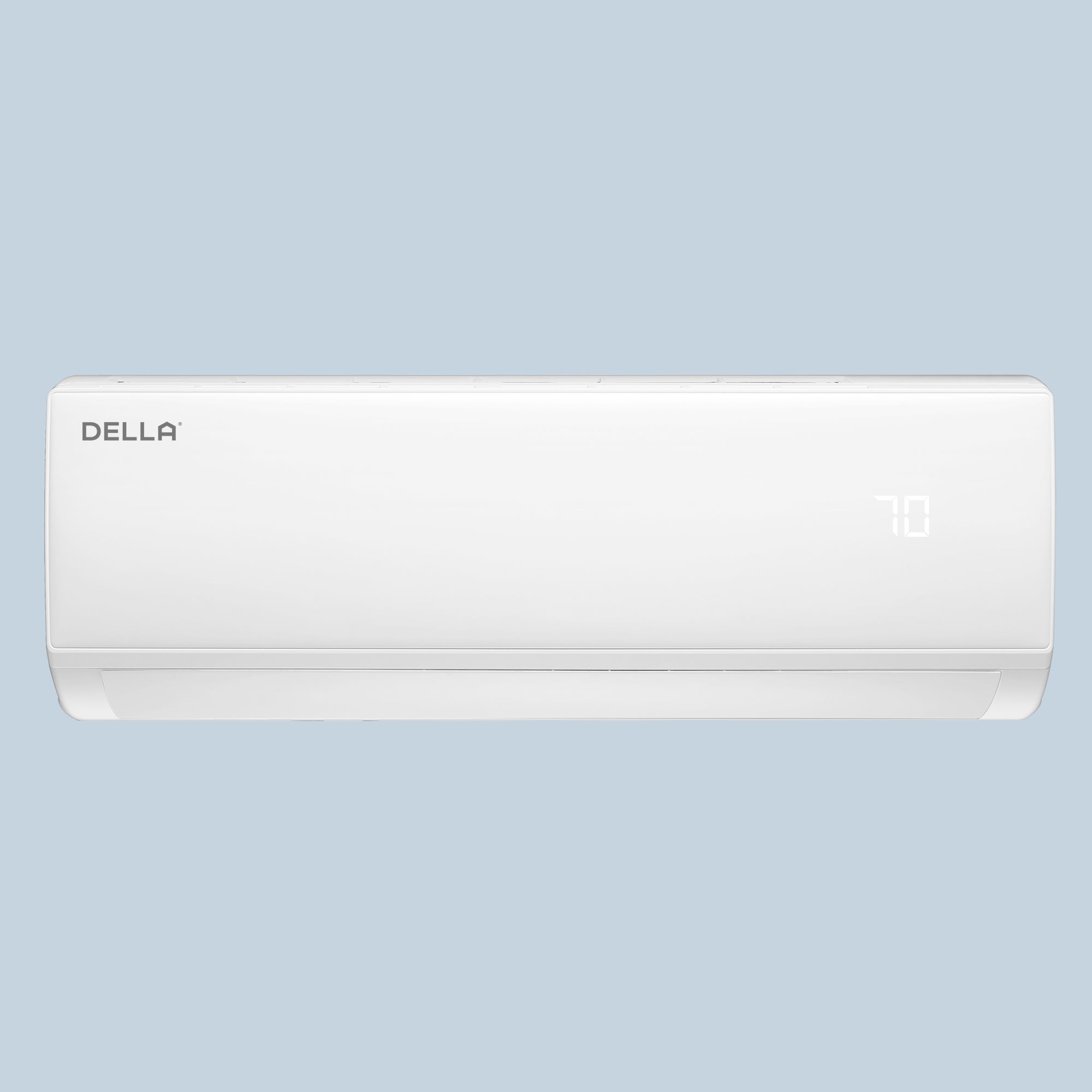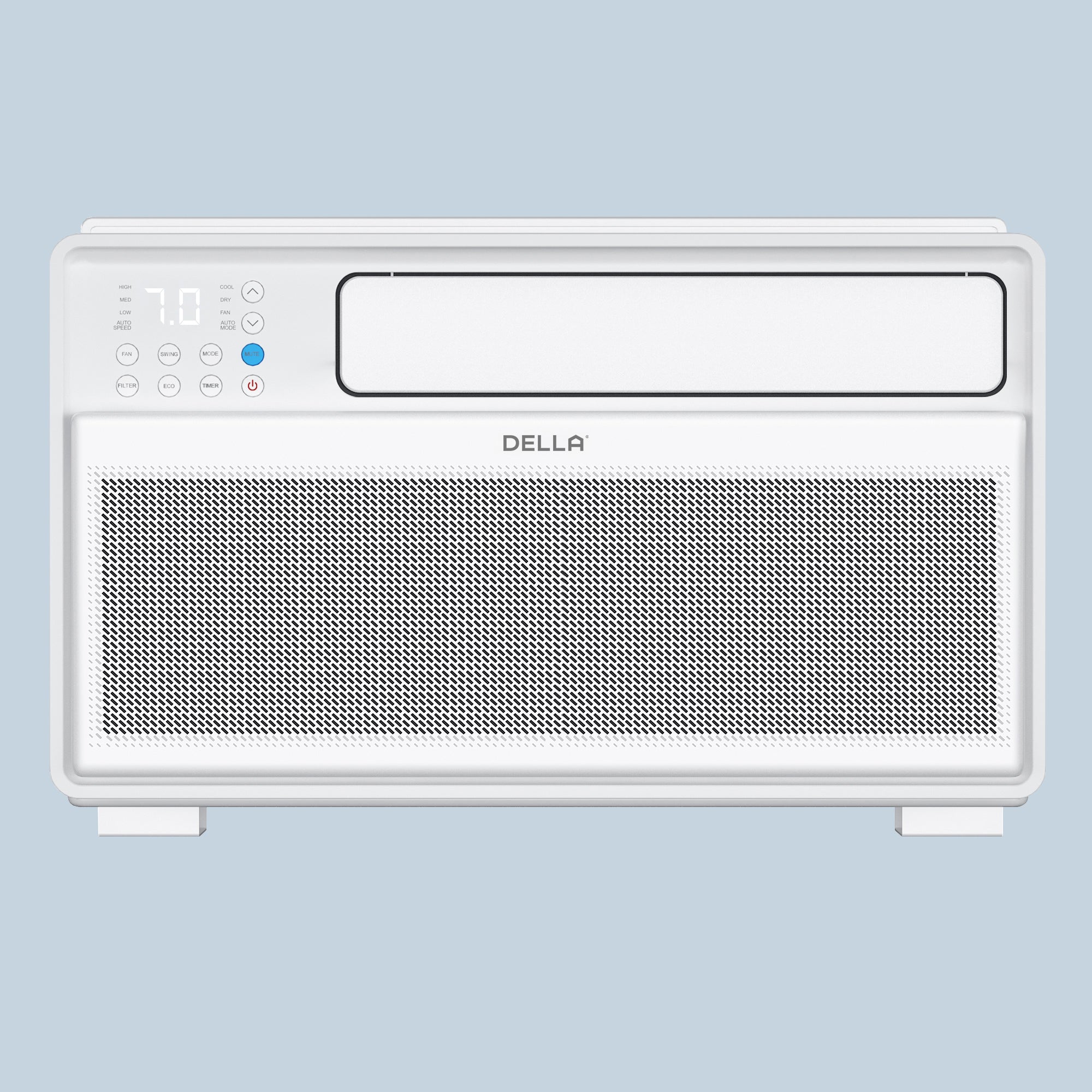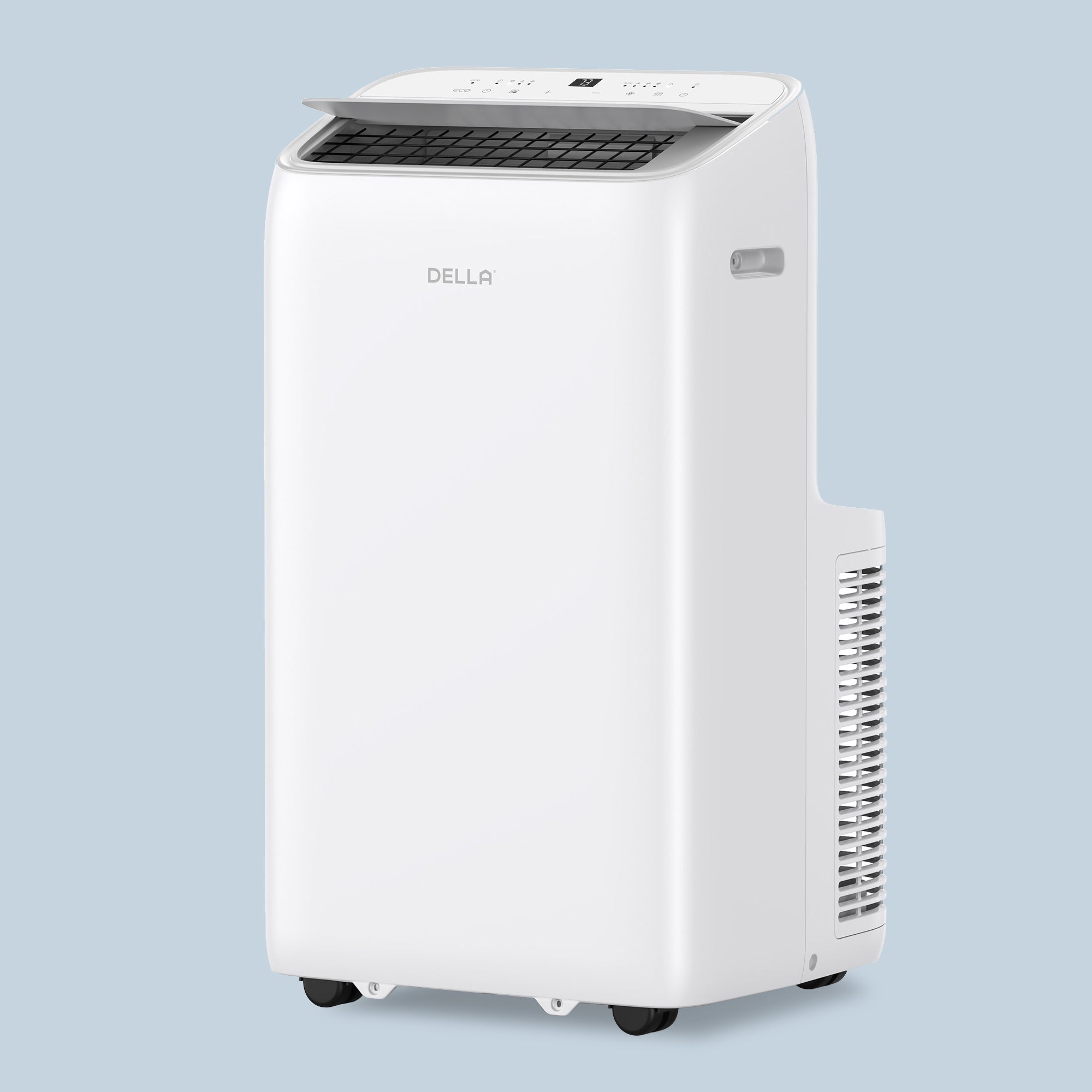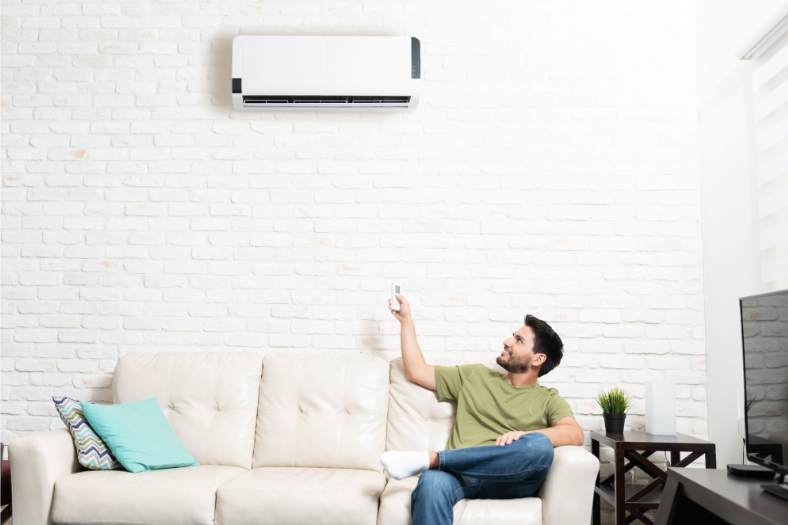To improve air conditioning efficiency, we have to make our room door and windows closed. In such a stuffy room, do mini splits get fresh air? The answer is NO. Mini Split ACs primarily work by cooling and circulating the indoor air, and purifying air by filter, rather than bringing in fresh air from outside. Let's continue and explore how mini split improves room air quality further.
How Do Mini Split Air Conditioners Work?
Mini split systems operate by drawing warm indoor air into the unit, where it’s cooled through a refrigeration process. This process involves a refrigerant that absorbs heat from the indoor air and then releases it outside through an external condenser unit. Once the air is cooled, the mini split recirculates it back into the room. While Mini split heat pump converse the process.
In addition to cooling, mini splits come equipped with filters that capture dust, allergens, and other particles, improving the quality of the recirculated air.

Mini Splits Air Circulation Quality vs. Fresh Air from Ventilation
When it comes to air quality, there's a notable difference between the filtered air recirculated by mini splits and fresh air brought in directly from outside.
Mini splits can enhance indoor air by filtering dust, allergens, and some airborne particles, which may be sufficient for spaces where controlling pollutants is the primary concern.
However, fresh outdoor air has distinct advantages that mini splits alone cannot provide. Outdoor ventilation brings in oxygen-rich air, dilutes indoor pollutants, and helps prevent a stuffy atmosphere. Without this direct ventilation, mini splits may not fully address the need for a fresh, balanced air supply in some spaces.
All in all, the choice depends on the room's ventilation needs: for spaces where filtering indoor air is enough, mini splits perform well. For those needing fresh, continuously refreshed air, additional ventilation may be necessary alongside a mini split system.
Advantages of Mini-Split Filters in Maintaining Cleaner Recirculated Air
Reduction of Indoor Pollutants
Mini-split filters trap common indoor pollutants such as dust, pollen, and pet dander.
Continuous Air Filtration
As mini splits continuously recirculate indoor air, this ongoing filtration keeps indoor air cleaner and prevents pollutant buildup over time.
Low Maintenance Air Quality Solution
Mini-split filters are relatively easy to clean or replace, making it simple to maintain consistent air quality. Regular maintenance ensures filters remain effective at capturing particles without requiring complex air handling systems.
Improved Indoor Comfort without Extensive Ductwork
Unlike central HVAC systems that rely on ductwork, mini splits offer cleaner air through a compact system, suitable for individual rooms or zones. This targeted approach allows for enhanced air quality where it’s needed most, without the energy loss or dust accumulation common with ducted systems.
Enhanced Air Quality in Enclosed Spaces
In rooms with limited ventilation options, mini splits can reduce odors and particles that might otherwise linger in enclosed spaces.

How to Improve Indoor Room Air Quality?
Increase Ventilation
Regularly opening windows and doors, even briefly, can bring in fresh air and help reduce indoor pollutants. Ventilating early in the morning or late in the evening is often best, as outdoor air can be cooler and cleaner. For larger homes or areas with multiple rooms, a multi zone mini split system can offer targeted air filtration and temperature control in each zone.
Use High-Quality Air Purifiers
Standalone air purifiers with HEPA filters can effectively capture dust, pollen, pet dander, and even certain bacteria and viruses. Place them in high-traffic or high-use rooms like living rooms and bedrooms for the best effect.
Add Indoor Plants
Some indoor plants, such as spider plants, peace lilies, and snake plants, can help purify the air by absorbing certain toxins and releasing oxygen. They also add humidity to dry spaces, making the indoor environment more comfortable.
Install Exhaust Fans in Key Areas
Use exhaust fans in areas like kitchens, bathrooms, and laundry rooms, where moisture and odors accumulate. Proper ventilation in these spaces helps reduce mold, mildew, and unwanted smells.
Control Humidity Levels
Maintaining indoor humidity between 30-50% prevents mold growth and reduces dust mite presence. Dehumidifiers can help manage high humidity, especially in basements or damp climates.
Use Natural Cleaning Products
Many cleaning products release volatile organic compounds (VOCs) that can pollute indoor air. Opt for natural or low-VOC products to reduce chemical buildup in your home and improve air quality.
Regularly Clean and Vacuum
Dust, pet dander, and other allergens accumulate over time, affecting air quality. Regularly vacuuming with a HEPA filter and dusting surfaces can significantly reduce allergens in the air.
Keep Your Mini Splits Clean
Clean your mini splits air filters clean or replaced regularly. Clean air ducts and vents also help prevent dust and allergens from circulating in your home.
Minimize Indoor Pollutant Sources
Avoid smoking indoors, limit the use of candles and incense, and reduce the use of products with strong fragrances or aerosols. These steps reduce indoor air pollutants and keep the environment healthier.
Use Activated Charcoal or Baking Soda
Place bowls of activated charcoal or baking soda around the house to naturally absorb odors and certain toxins. This simple, passive method can improve air quality, especially in closed rooms or closets.
The Importance of Indoor Air Quality
Indoor air quality (IAQ) plays a critical role in our health, comfort, and overall well-being. Poor IAQ, often stemming from indoor pollutants like dust, pet dander, mold, and chemicals from cleaning products or furniture (known as volatile organic compounds, or VOCs), can lead to respiratory issues, allergies, and even fatigue. Prolonged exposure to low-quality air can increase the risk of developing chronic conditions such as asthma, cardiovascular disease, and other respiratory problems.
On the other hand, maintaining good IAQ by controlling pollutants, ensuring proper ventilation, and managing humidity levels promotes a healthier indoor environment. Cleaner air reduces allergy symptoms, supports clearer thinking, and contributes to better physical and mental health. Prioritizing IAQ in our homes and workplaces helps create a space that not only feels more comfortable but also actively supports the health and productivity of everyone inside.
Conclusion
Ensuring good indoor air quality is essential for creating a comfortable, healthy living space. While mini splits don’t bring in fresh air, they help maintain cleaner indoor air by filtering out dust and allergens, making them a valuable addition for improving comfort and air quality in your home.
Ready to upgrade your indoor environment? Explore Della’s range of high-quality mini split air conditioners to find the perfect solution for your home’s heating and cooling needs. Visit Della today to create a fresher, more comfortable indoor space!
Read More:
What Size of Mini Split Air Conditioner Do I Need?
8 Steps to Install a Mini Split Air Conditioner Easily
How Does a Mini Split Air Conditioner Work?








LEAVE A COMMENT
All comments are moderated before being published.
This site is protected by hCaptcha and the hCaptcha Privacy Policy and Terms of Service apply.